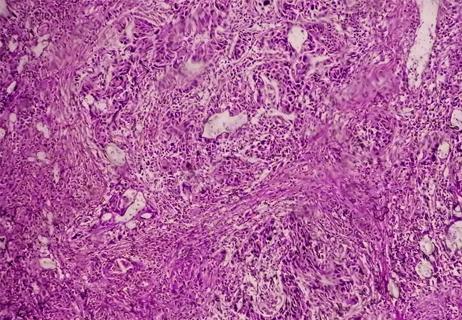For more than four decades, patients with urothelial cancer have been treated with cisplatin. However, more than 50% of those patients are ineligible for the chemotherapy drug due to comorbidities. Now there are promising new therapies effective in both cisplatin-eligible and cisplatin-ineligible patients – enfortumab vedotin (EV) and pembrolizumab.
Advertisement
Cleveland Clinic is a non-profit academic medical center. Advertising on our site helps support our mission. We do not endorse non-Cleveland Clinic products or services. Policy
Podcast content: This podcast is available to listen to online.
Listen to podcast online (https://www.buzzsprout.com/2241774/14949986)
In a phase 3 trial of platinum-eligible patients, the response rate of patients with advanced urothelial cancer who were given a combination of EV and pembrolizumab was 68% compared to 44% who received chemotherapy. In addition, their overall survival rate doubled.
“It’s really unprecedented data that we have seen so far,” says Shilpa Gupta, MD, director ofGenitourinary Medical Oncology at Cleveland Clinic’s Taussig Cancer Institute. “It’s become the undisputed frontline standard.”
In a recent episode of Cleveland Clinic’s Cancer Advances podcast, Dr. Gupta provides an overview of the clinical trial. She discusses:
Click the podcast player above to listen to the episode now, or read on for a short edited excerpt. Check out more Cancer Advances episodes at clevelandclinic.org/podcasts/cancer-advances or wherever you get your podcasts.
Podcast host Dale Shepard, MD, PhD: This [phase 3 trial] was for patients with metastatic disease. What's going on with these combinations in a neoadjuvant setting?
Dr. Gupta, MD: That's also a great question. There's already phase 3 trials being done in both cisplatin-eligible and cisplatin-ineligible muscle invasive cancer with EV-pembro. So, in cisplatin-ineligible, it is compared to single agent pembro or upfront cystectomy. And in the cisplatin-eligible, it's compared to GemCis [gemcitabine-cisplatin]. So, we are waiting for the studies to accrue and see.
Advertisement
And that will again, I think, change the landscape if it moves to that setting. So, it's really an exciting time. This combination is something that people are really excited about in every setting.
Dr. Shepard: Historically, neoadjuvant studies in bladder have been tough. Has the excitement of this combination in the metastatic setting sort of eliminated some of that difficulty doing a neoadjuvant study?
Dr. Gupta:I would say we don't know yet. But we are taking part in those studies, and I think that it is somewhat more toxic than we see in the metastatic setting, especially after surgery. It becomes a little bit of a challenge to continue EV-pembro for a long time. And that's why I'm really looking forward to the data from these neoadjuvant studies as to what was the tolerability. Because in my experience, it has been more difficult than in the metastatic setting.
Advertisement
Advertisement

Enfortumab vedotin plus pembrolizumab benefited patients, regardless of biomarker expression

Treatment involved checkpoint inhibitor, surgery and intravesical therapy

Enfortumab plus pembrolizumab reduced risk of death by 53% compared with platinum-based chemotherapy

Potential treatment option for patients who are ineligible for cisplatin

Genetic variants exist irrespective of family history or other contributing factors

Percutaneous stabilization can increase mobility without disrupting cancer treatment

New guidelines update recommendations

Simple score uses clinical factors to identify patients who might benefit from earlier screening